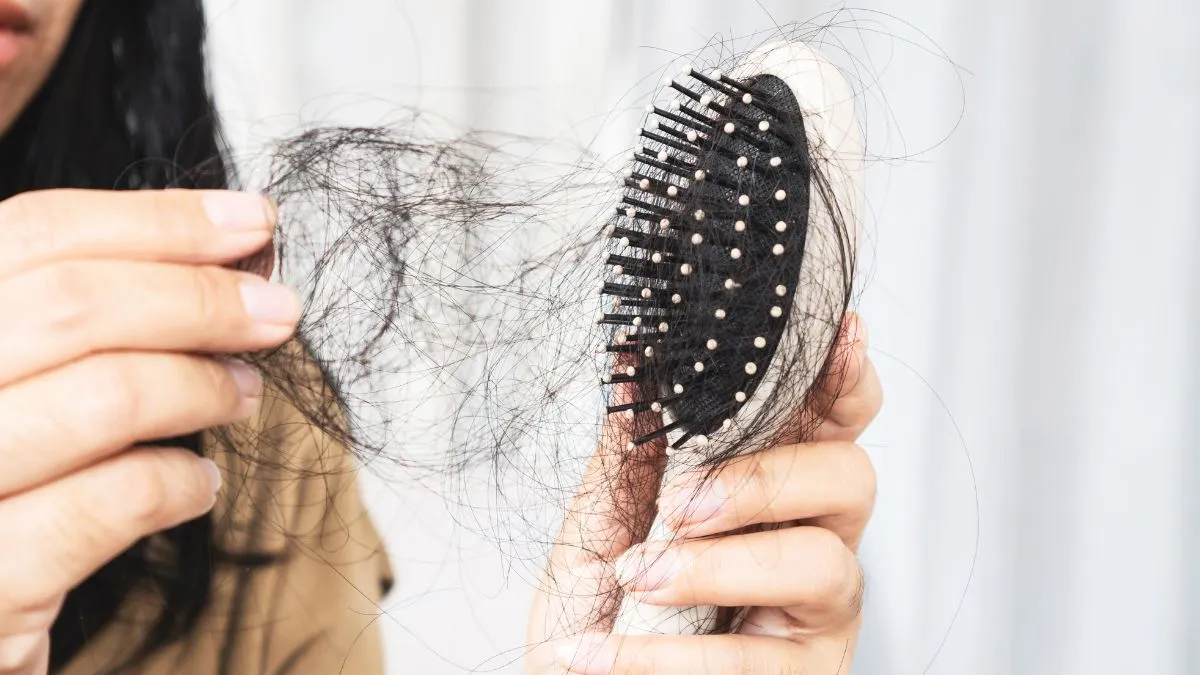- By Iram Hussain
- Sun, 02 Mar 2025 05:30 PM (IST)
- Source:JND
Due to seasonal changes, women often face a common concern which is excessive hair fall. As temperatures fluctuate, humidity levels rise and winds pick up, hair becomes more prone to breakage and shedding. This seasonal hair fall can be distressing, leading women to seek solutions to restore their hair's health and vitality and prevent further damage. Seasonal transitions, most notably from winter to spring impact the health of the hair. Hair fall at this point in the year is something many people experience. A variety of reasons are involved and the triggers and possible treatments could possibly alleviate the condition.
In a conversation with Jagran English, Dr BL Jangid, Dermatologist and Hair Transplant Surgeon, SkinQure Clinic, Saket-Delhi explained the common triggers of hair fall and ways to stop it during seasonal changes.
Why Does Shedding Occur More In Seasons?
Temperature Fluctuations
Sudden transition from cold winter air to warm spring air can cause scalp dryness and irritation. Itching, flakiness, and increased shedding are all possible in dry scalp.
Humidity Changes
The added humidity in springtime may result in some individuals secreting too much oil, resulting in possible hair fall or thinning.
Hair Growth Phase
According to research, the most shedding in the spring period occurs because of the regular springtime cycle. This is a normal aspect of the telogen (rest) cycle whereby the old hair falls off to accommodate new growth.
Nutritional Deficiency
A few experience a drop in the content of vitamin D during the winter. Deficiencies in the necessary nutrients are also a likely cause of increased hair loss.
Ways To Manage Hair Fall During Seasonal Changes
Choose Hair Products Carefully
Use a gentle shampoo with a nourishing conditioner to protect hair loss in spring. Those having oily and flaky scalp can look for detoxifying shampoo, having salicylic acid which can help remove any buildup from your scalp, making it feel fresh and clean.
Scalp Massage
Massaging the scalp may boost circulation, encouraging hair growth. However, consult a dermatologist before using any oils or treatments if you have sensitive skin. Also, it is advisable to apply oil 2-3 hours before hair wash and avoid keeping hair oil on your scalp overnight.
Nutrient-Rich Diet
A diet balanced with biotin, iron, and zinc can nourish the hair and prevent hair loss. Intake of vitamin D, either from the sun or supplements, could also be good for the hair.
Mild Hair Regime
Cut back heat styling and chemical treatments, as they affect the hair follicles, resulting in damage to the root and may lead to hair loss.
Stress Management
Stress worsens the condition of hair fall. Use mindfulness, yoga, or other relaxing techniques to control the condition of stress.
ALSO READ: 4 Mistakes You Should Avoid To Prevent Excess Hair Fall
ALSO READ: 5 Simple Hair Masks To Control Hair Fall Naturally At Home


